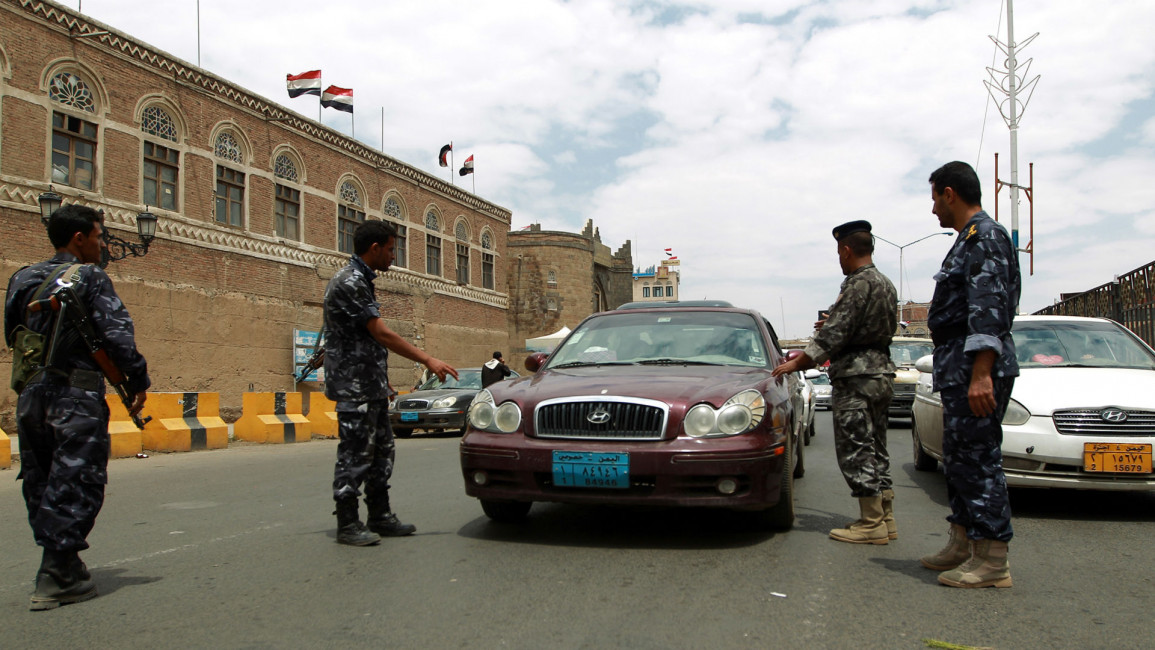Failed Yemen raids call US hostage strategy into question
Two failed US military operations in Yemen in the space of two weeks have raised serious questions about US policy towards hostage-taking and hostage takers.
Luke Somers, an American photojournalist, and Pierre Korkie, a South African aid worker, were both shot dead on Saturday during a rescue attempt conducted by US Navy Seals and assisted by Yemeni special forces. They were both held by al-Qaeda in the Arabian Peninsula (AQAP).
At least 11 Yemenis, including a 10-year old boy and a woman, were also killed in the raid.
The two men, held hostage for 15 and 18 months respectively, had been living and working in Yemen for some time before being kidnapped. It is unknown whether they were kidnapped by AQAP, or merely sold onto them later on.
While details of Saturday's raid are still murky, Somers and Korkie are believed to have been shot dead by an AQAP guard as US and Yemeni forces approached the building where they were being held, in Yemen's Shabwa province.
A US raid on November 25 was aimed at freeing Somers, but, along with Korkie, he was said to have been moved from the area targeted a few days beforehand. Seven Yemeni hostages and one Ethiopian are said to have been freed in that raid, in which a number of AQAP militants are said to have been killed.
AQAP responded by releasing a video on Thursday, featuring Somers, in which the group threatened to kill the photojournalist within three days, should their unspecified demands not be met. Those three days ran out on Sunday.
Korkie 'was set to be released'
What were those demands? And should any state negotiate with al-Qaeda, or any other such extremist group?
According to Gift of the Givers, the South African charity that Korkie worked for, he was set to be released on Sunday.
| His passport was ready... the attack happened by US special forces in Yemen and that has destroyed everything. - Anas Hamati, Gift of the Givers |
In a statement given by the charity, they said that Korkie's captors had agreed to release him for a ransom of $200,000. Initially the captors are said to have demanded $3 million.
His wife, Yolande, had initially been held hostage with him, but was released in January after negotiations with Gift of the Givers.
“Three days ago we told her [Yolande], 'Pierre will be home for Christmas,'” the statement said. “We certainly did not mean it in the manner it has unfolded.”
Gift of the Givers' Yemen project director, Anas Hamati, confirmed that Korkie was set for release.
“His passport was ready, everything was ready. In that time, the attack happened by US special forces in Yemen and that has destroyed everything,” Hamati said.
US 'did not' know
The US ambassador to South Africa, Patrick Gaspard, has said that his country “did not know” that Korkie was set to be released, but that news, along with the November 25 failed raid, have raised questions about the quality of US intelligence on the ground.
| Luke would have given support to the ongoing discussions [to secure his release] in Yemen rather than the conflict approach. - Penny Bearman, Luke Somers' stepmother |
While stressing that they do not hold the US raid responsible for the death of their son, the family of Luke Somers said that they had hoped for a non violent conclusion to the crisis.
“Luke would have given support to the ongoing discussions [to secure his release] in Yemen rather than the conflict approach”, adding that there had been “threats before that had not been carried out” said Penny Bearman, Luke Somers' stepmother.
“If they'd been able to pull him out we would have been singing their praises,” she said.
| I think there will be consequences to what has happened today. - Iona Craig, freelance journalist |
The danger is that we may now see an escalation in violence from AQAP, in response to the failed raids.
The threat to kill Somers was already a first, AQAP had not previously threatened to killed any of their foreign hostages.
“I think there will be consequences to what has happened today,” Iona Craig, a freelance journalist based in Yemen, said to the BBC on Sunday. “I think it puts every foreigner in this country's life in even more danger than it was before.”
“[AQAP's] threat... was a direct result of the failed US raid on November 25,” Craig added.
Anti US sentiment
It is important not to underestimate the significance of the Yemeni dead. While they have taken secondary importance in much of the reporting of the US-led raids, the death of yet more Yemeni civilians at the hands of the US adds to the anti-American feeling in the country, especially in tribal areas that are often at the receiving end of US drone strikes.
Local reports have already suggested that men from the same tribes as the dead, said to include the important Awlaki tribe, have pledged allegiance to al-Qaeda.
No 'whosale' review
While the US and UK public policy of not paying ransoms to kidnappers is long standing and has popular public support in both countries, will these develpoments usher in a review of this approach?
The answer was provided by US Defense Secretary Chuck Hagel who defended the operation and the intelligence that lay behind it, and suggested there would be no wholesale review of U.S. policy.
"I don't think it's a matter of going back and having a review of our process. Our process is about as thorough as there can be. Is it imperfect? Yes. Is there risk? Yes," Hagel said on a visit to Tactical Base Gamberi in eastern Afghanistan.
"But we start with the fact that we have an American that's being held hostage and that American's life is in danger and that's where we start. And then we proceed from there," he said.
Additional reporting by agencies



